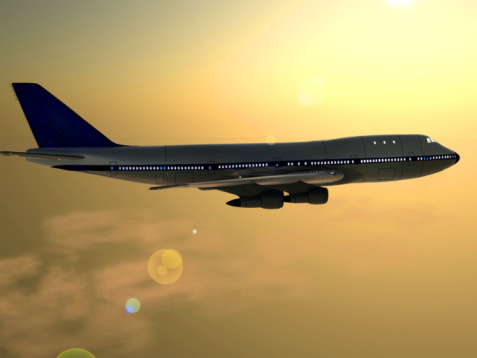
Under the terms of the settlement, the combined company will operate 44 fewer daily departures from Washington and 12 fewer from LaGuardia. Currently the combined airlines operate 290 daily departures out of Reagan and 175 from LaGuardia. The combined airline also has agreed to maintain its hubs in Charlotte, New York (Kennedy), Los Angeles, Miami, Chicago (O’Hare), Philadelphia and Phoenix for a period of three years.
When the Justice Department filed its antitrust lawsuit against AMR and U.S. Airways, airline stocks turned south quickly, but the reaction was sharply different Tuesday. Investors continue to think that a settlement is in the works and that the merger will get done. U.S. Airways shares were up nearly 3.5% at $24.07, against a 52-week range of $11.52 to $25.49. AMR shares were up about 27.5% at $12.15, against a 52-week range of $0.36 to $13.50.
United Continental Holdings Inc. (NYSE: UAL) has risen more than 4.5% to $36.95, against a 52-week range of $19.20 to $37.82, a new high set Tuesday. Even though it has completed its United-Continental merger, Continental will have less room to squeeze flyers now. This merger was a bad one for consumers as fees have risen, service has declined and airline fares to major cities have gone higher. Its market cap is $11.5 billion.
Delta Air Lines Inc. (NYSE: DAL) is seeing shares rise by about 2% to $27.98, against a 52-week range of $9.21 to $28.37, another new high. Delta is considered an acquirer in possible future mergers, and if the Justice Department will block AMR and U.S. Airways from merging, then this one may have a much harder time buying an airline with its $17 billion market cap.
Southwest Airlines Co. (NYSE: LUV), which recently completed its AirTran buyout, was trading up about 2.8% at $18.31, in a 52-week range of $8.70 to $18.37, another new high. Southwest is a rival in the Dallas hub against AMR. Southwest’s market cap is around $12.8 billion, nearly $3 billion more than it was last August when the Department of Justice action was announced.
JetBlue Airways Corp. (NASDAQ: JBLU) has risen sharply, up 7.2% to $8.23 Tuesday, against a 52-week range of $4.80 to $8.25, another new high. We think that this implies that one of the carriers may be interested in acquiring JetBlue as it is expanding into more international growth markets. The downside for JetBlue, of course, would be that if the Justice Department blocks the AMR-U.S. Airway merger, the decision lowers pricing power for all airlines. JetBlue competes against both American and U.S. Airways, and its market cap is the smallest of all major carriers we follow, at only $2.33 billion.
This report is definitely good for both the airlines and for airline investors. The bad news for you and me is that this is one less competitor for our travel dollars, and that means higher airfare ticket prices and fees.
Are You Still Paying With a Debit Card?
The average American spends $17,274 on debit cards a year, and it’s a HUGE mistake. First, debit cards don’t have the same fraud protections as credit cards. Once your money is gone, it’s gone. But more importantly you can actually get something back from this spending every time you swipe.
Issuers are handing out wild bonuses right now. With some you can earn up to 5% back on every purchase. That’s like getting a 5% discount on everything you buy!
Our top pick is kind of hard to imagine. Not only does it pay up to 5% back, it also includes a $200 cash back reward in the first six months, a 0% intro APR, and…. $0 annual fee. It’s quite literally free money for any one that uses a card regularly. Click here to learn more!
Flywheel Publishing has partnered with CardRatings to provide coverage of credit card products. Flywheel Publishing and CardRatings may receive a commission from card issuers.
Thank you for reading! Have some feedback for us?
Contact the 24/7 Wall St. editorial team.


